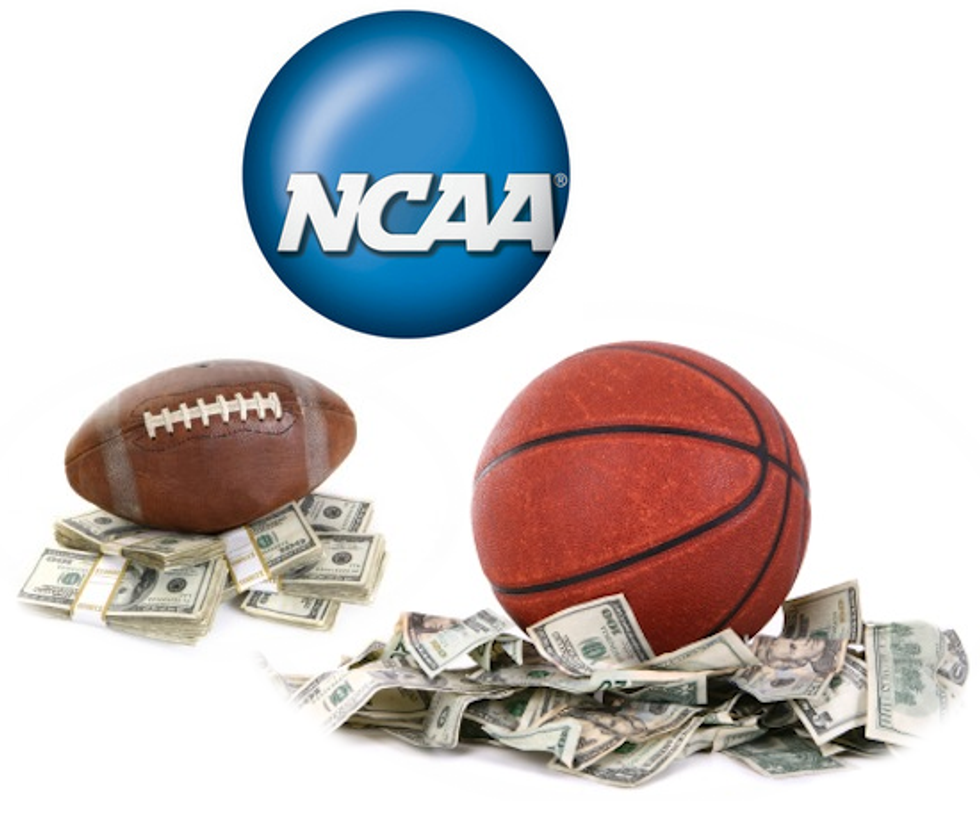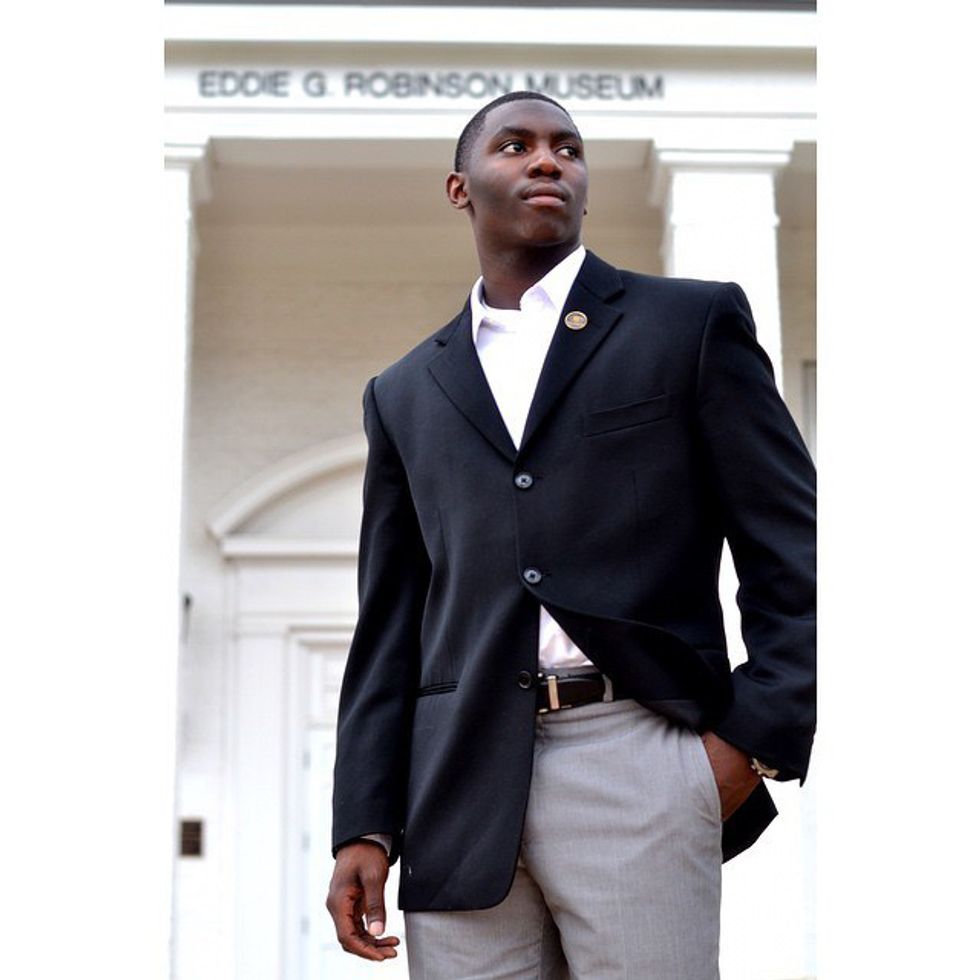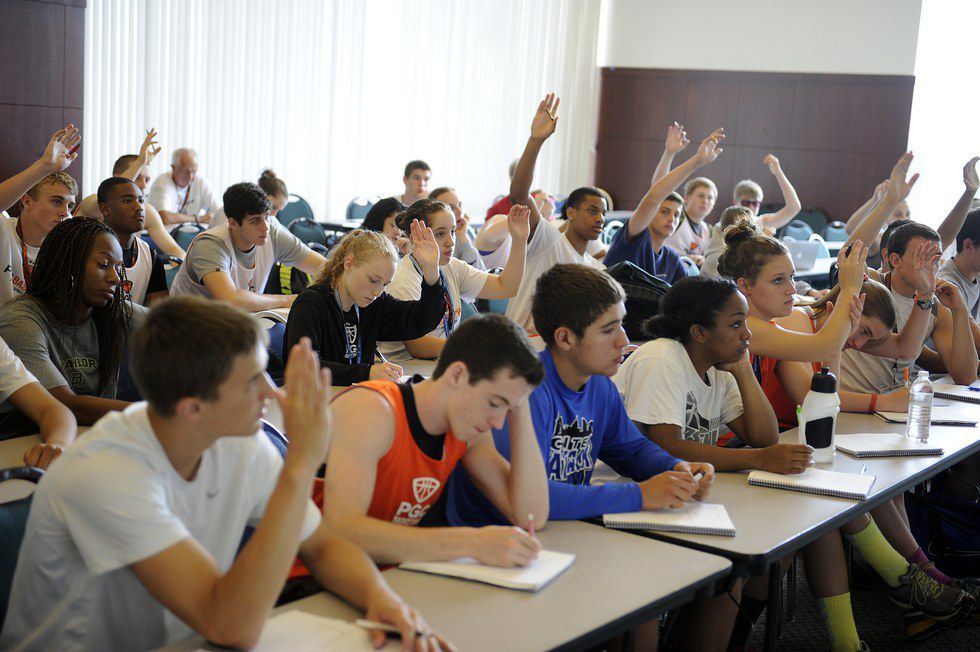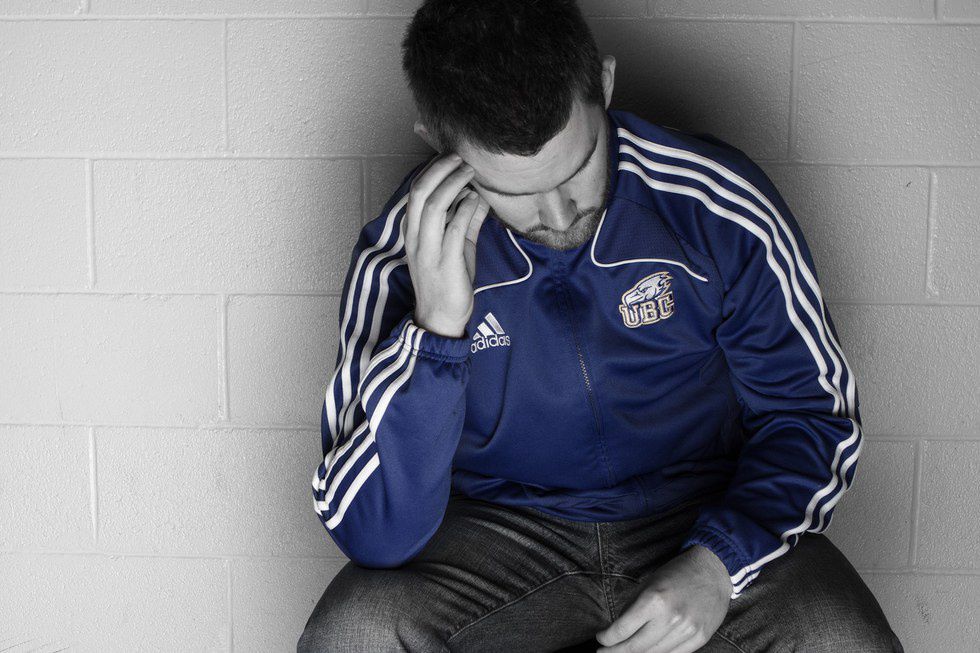Participating in college athletics is a fun and exciting experience for most people. To some, college student-athletes are seen as normal students. Others see college student-athletes as hometown heroes and the popular people on campus that seem to have it made. They are known to most students on campus as the ones who are close to all of their professors and who don't have to work hard to earn good grades. People often find it cool that student-athletes receive free athletic gear and get to miss class here and there to travel to ball games and other school functions. In reality, is this the lifestyle a college student athlete really lives? After a sit down talk with a few friends who are athletes, they were able to give me insight into three advantages and disadvantages of being a college student-athlete.
Three advantages of being a student-athlete are:
1.Receiving scholarships to pay for school tuition
Many college student-athletes would not be able to afford a college education if it were not for athletic scholarships. Receiving an offer for an athletic scholarship could be a huge way to determine how someone will pay for college. According to the NCAA "only about two-percent of high school athletes are awarded athletics scholarships to compete in college." Full scholarships are awarded by the NCAA to high school students attending Division I or II schools. Of the many athletes that are awarded scholarships to play sports on the collegiate level, very few of them go on to play professional sports. The most rewarding incentive of receiving an athletic scholarship is a free college education.
2. Exposure to public and media relations on a national and international level
As athletes, students have the pleasure and opportunity of traveling to numerous states and countries to participate in their respective sporting events. Being exposed to the media and other surroundings can open up so many wonderful doors for student-athletes from moving on to the professional level to compete to being asked to be a part of coaching staffs on various levels. Most students may have never gotten the chance to visit some places if they weren't student-athletes.
3. Having the unique privilege of being ambassadors for their university both on and off the court or field
While athletes are allowed to shine on the field and court during sporting events, they are given the opportunity to do so off the field as well. Student-athletes are presented with numerous opportunities to represent their university off the field by attending and participating in charitable events, public speaking to students and community service events. This allows athletes to build a positive platform for themselves as well as their university. Jonathan Wallace, a senior member of the Grambling State University football team, provided the following statement:
"For the 2015-2016 school year, I had the unique honor of being the first student-athlete to serve as Student Government Association president while still competing on the football field. Many didn't see how it would even be possible, but I accepted the challenge of representing the student body and my university. The school year was very successful both on and off the field thanks to my teammates and the student body."
Being a student-athlete comes with disadvantages as well. Three of which are:
1. Limited time for social life
For most college students the "snooze" button is our best friend. Unfortunately, not too many student-athletes get that privilege. They are on the go from sun up to sun down. In between early morning workouts, attending class, study hall and team meetings, athletes don't have time for much of a social life.
2. Level of play on the field or court sometimes overshadows the importance of the work in the classroom
Student-athletes often get so caught up in trying to impress their coaches and fans that they forget the most important thing: making good grades. Although students are sent to school on athletic scholarships to play sports, maintaining good grades should be their number one focus. Without the proper grades and GPA participating in sports would not be possible. Most university athletic programs require weekly study hall time to ensure that athletes are given time to complete required assignments. The NCAA as well as the university holds student-athletes to certain academic standards that they must meet each semester. Failing to meet these standards could result in a student's scholarship being revoked, academic probation, or even removal from the university.
3. Raised expectations can cause stress and depression
Believe it or not, student-athletes are held to much higher standards and expectations than are normal students. Along with students in student government and other campus organizations, athletes are seen as some of the most influential students on campus. Not only are they looked up to by their peers, but also by people in the community, typically smaller children, as well. From trying to please their parents, coaches, and fans, to making good grades and maintaining a social life, student athletes become overwhelmed. Their minds and bodies become exhausted and overworked, causing them to often feel stressed and depressed. NCAA Chief Medical Officer Dr. Brian Hainline produced a guide for student athletes titled "Mind, Body and Sport: Understanding and Supporting Student-Athlete Mental Wellness" to make athletes as well as others understand the importance of an athlete's well-being and mental health.
From the looks of things, being a student-athlete could be considered rewarding and fun, but most definitely requires a lot of time, effort, and dedication. Could you walk a mile in a student-athlete's shoes?































